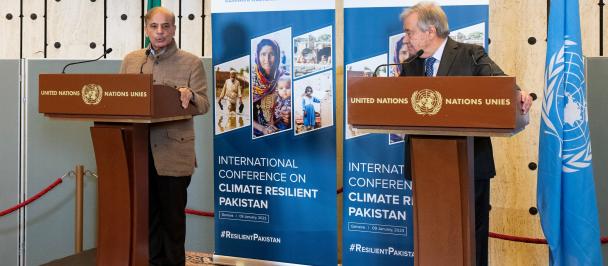Scaling-up of Glacial Lake Outburst Flood (GLOF) risk reduction in Northern Pakistan
Project Summary:
Due to rising temperatures, glaciers in Pakistan’s northern mountain ranges (the Hindu Kush, Himalayas
The Scaling-up of GLOF risk reduction in Northern Pakistan (GLOF-II) project is a continuation of the four-year ‘Reducing Risks and Vulnerabilities from GLOF in Northern Pakistan’ (GLOF-I) project. GLOF-I helped vulnerable communities prepare for and mitigate GLOF risks through early warning systems, enhanced infrastructure
Objectives:
GLOF-II builds on the measures piloted by GLOF-I and aims to empower communities to identify and manage risks associated with GLOFs and related impacts of climate change, strengthen public services to lower the risk of disasters related to GLOF, and improve community preparedness and disaster response. The project will also support the development of sustainable options for livelihoods in project areas, with a particular focus on the participation of women in ensuring food security and livelihoods.
Expected results:
GLOF-II will scale up GLOF-I from its original two districts (one each in KP and GB) to cover 10 districts, benefiting 29 million people or 15 percent of the population of Pakistan. Expected results by the end of the project are:
- At least two policies reviewed and/or revised to address or incorporate GLOF risk reduction.
- In target communities, 95 percent of households able to receive and respond to early warnings and take the appropriate action.
- At least 250 small-scale engineering structures established to reduce the effects of GLOF events on livelihoods, such as tree plantation, controlled drainage
and mini dams . - Fifty weather monitoring stations to collect meteorological data in catchment areas; 408 river discharge sensors to collect river flood data. This data will inform hydrological
modelling and help develop village hazard watch groups. - To improve food security and reduce flood risks due to deforestation and inefficient water use, 65,000 women will be trained in home gardening, 240 water-efficient farming technologies will be installed and 35,000 hectares of land will be reforested

 Locations
Locations



